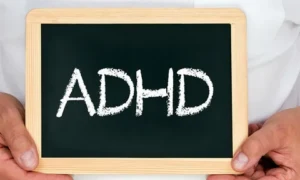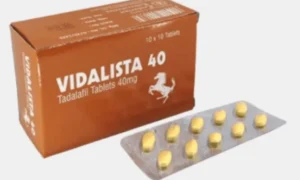Introduction to Thyroid Replacement Therapy
Thyroid replacement therapy is a cornerstone treatment for individuals suffering from hypothyroidism, a condition where the thyroid gland fails to produce sufficient thyroid hormones. This hormonal deficiency can lead to a variety of health issues, including fatigue, weight gain, and depression.
The most common treatment involves the administration of synthetic thyroid hormones to restore normal levels and maintain metabolic balance. For those seeking effective Thyroid Hormone Replacement Therapy in Jackson, it is essential to work with healthcare providers who specialise in endocrine disorders to ensure precise dosing and regular monitoring. This ensures that patients achieve optimal hormone levels and symptom relief, improving their overall quality of life.
Understanding Hypothyroidism
What is Hypothyroidism?
Hypothyroidism occurs when the thyroid gland, located at the base of the neck, under produces hormones that regulate metabolism. Common symptoms include fatigue, weight gain, cold intolerance, and depression. Left untreated, it can lead to severe health complications such as heart disease, infertility, and myxedema coma.
Causes of Hypothyroidism
The most prevalent cause of hypothyroidism is Hashimoto’s thyroiditis, an autoimmune condition where the body’s immune system attacks thyroid cells. Other causes include:
- Surgical removal of the thyroid gland
- Radiation therapy
- Certain medications
- Iodine deficiency
- Congenital hypothyroidism
Thyroid Hormone Replacement Options
Levothyroxine: The Standard Treatment
Levothyroxine is the most widely prescribed medication for thyroid hormone replacement. It is a synthetic form of thyroxine (T4), one of the primary hormones produced by the thyroid gland.
Benefits of Levothyroxine:
- Consistency: Provides stable and consistent hormone levels.
- Bioequivalence: Closely mimics natural thyroid hormone.
- Adjustability: Dosages can be easily adjusted based on blood test results.
Administration and Dosage:
Levothyroxine is typically taken orally, once daily, preferably on an empty stomach. Dosage is individualized, starting with a low dose and gradually increasing based on the patient’s response and regular monitoring of thyroid function tests.
Liothyronine and Combination Therapy
Liothyronine (T3) is another synthetic thyroid hormone, used less frequently due to its shorter half-life and the need for more frequent dosing. Some patients may benefit from combination therapy, which includes both T4 and T3, especially if they do not respond adequately to T4 alone.
Combination Therapy:
- Liotrix: A fixed-ratio combination of T4 and T3.
- Desiccated Thyroid Extract (DTE): Derived from animal thyroid glands, contains both T4 and T3 in a natural balance.
Factors Influencing Treatment Choice
- Severity of Hypothyroidism: Determines the initial dose and type of medication.
- Patient Age and Weight: Older adults and children require careful dose adjustments.
- Pregnancy: Increased hormone requirements necessitate dose modifications.
- Concurrent Medical Conditions: Conditions like heart disease influence treatment strategies.
Monitoring and Adjusting Therapy
Regular Monitoring
Effective thyroid replacement therapy requires regular monitoring through blood tests, primarily measuring Thyroid-Stimulating Hormone (TSH) levels, and sometimes free T4 and T3 levels. These tests help ensure that hormone levels remain within the target range.
Adjusting Dosage
Adjustments to the dosage of thyroid medication are made based on:
- TSH Levels: High TSH indicates under-treatment, while low TSH suggests over-treatment.
- Symptom Improvement: Assessing relief from hypothyroid symptoms.
- Periodic Evaluation: Every 6-8 weeks initially, then every 6-12 months once stable.
Lifestyle and Dietary Considerations
Diet and Nutrition
Certain foods and supplements can interfere with thyroid hormone absorption. It is essential to:
- Avoid Goitrogens: Found in soy products, cruciferous vegetables, and certain nuts.
- Maintain Adequate Iodine Intake: Crucial for thyroid function, but avoid excess.
- Monitor Iron and Calcium Supplements: These can impair levothyroxine absorption if taken simultaneously.
Exercise and Physical Activity
Regular physical activity can help manage weight and improve overall well-being, which is particularly beneficial for individuals with hypothyroidism. However, exercise regimens should be tailored to the individual’s energy levels and overall health status.
Potential Side Effects and Complications
Over- or Under-treatment
Both over-treatment (leading to hyperthyroidism) and under-treatment can cause significant health issues. Symptoms of over-treatment include anxiety, insomnia, heart palpitations, and weight loss. Untreated or inadequately treated hypothyroidism can worsen cardiovascular health and cognitive function.
Drug Interactions
Several medications can interact with thyroid hormone replacement therapy, including:
- Antacids and Proton Pump Inhibitors: Affect hormone absorption.
- Antidepressants: Can alter hormone metabolism.
- Blood Thinners: Thyroid hormones can enhance their effects, requiring dose adjustments.
Conclusion
Thyroid replacement therapy is a critical intervention for managing hypothyroidism, offering a reliable means to restore normal thyroid function and improve quality of life. With appropriate medication, regular monitoring, and attention to lifestyle factors, individuals with hypothyroidism can lead healthy, symptom-free lives.
















